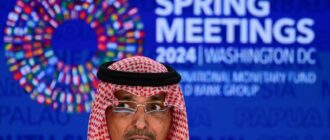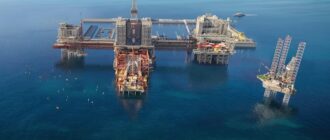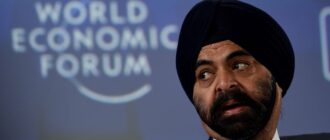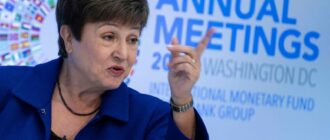
.
Giga-investment projects, elevated energy prices, greater fiscal responsibility, and improving demographics are helping drive a resurgence in growth in the Middle East and North Africa (Mena) region, a study showed on Monday.
“Mena stock valuations, as measured by price-to-earnings ratios, have declined from their March 2022 peak, and now sit comfortably below their 10-year average of 13.5x.1Earnings growth in the region is forecast to increase by mid-single digits in 2023, driven by rising investment and consumption,” said Salah Shamma, Head of Mena Equities for Franklin Templeton’s Emerging Markets Equity Group.
The Gulf Cooperation Council (GCC) has big spending plans, especially in Saudi Arabia, the region’s largest economy. As part of its Vision 2030 economic transformation plan, the government has announced its intention to invest over US$2 trillion in the domestic economy between now and the end of this decade.
Giga-projects have been the cornerstone of the multi-year reform process underway in the region. The imperatives of diversifying the economy away from oil, attracting capital and talent, and generating jobs for a young population have driven sustained momentum on the projects despite local and global headwinds, Franklin Templeton said in its report.
In Dubai, its economic Agenda 2033 aims to double the size of economy and place the city among the top three economic cities in the world. “Dubai will focus on foreign trade, foreign direct investment, private sector investments, and government spending to achieve its 2033 goals,” Shamma noted.
Franklin Templeton remains bullish on the energy price outlook over the medium-term. “The balance of risks for oil prices in 2023 appears to be on the upside, given the reopening of China, a continued revival in global travel, and the embargo/price cap on Russian oil by the United States and the European Union,” Shamma said.
Greater fiscal responsibility
The four major countries in the GCC (Saudi Arabia, the United Arab Emirates, Qatar, and Kuwait) are expected to experience double surpluses due to elevated oil prices, on both their fiscal and current accounts.
Fiscal surpluses during 2022 didn’t translate into excessive government expenditure. “This time around, the GCC governments have acted prudently and focused on their long-term economic agendas rather than provide a short-lived stimulus. transferring capital to state sovereign wealth funds,” the report said.
Mena’s rising weight
Mena’s weight in the MSCI Emerging Markets Index has increased from 1.6 per cent in 2016 to 7.7 per cent, as of 2022. The implementation of several market-based reforms in recent years has driven this increase. These include initial public offerings, privatisation and increasing foreign ownership limits. Saudi Arabia is the largest single market, with a weight of 4.1 per cent in the Index—which looks likely to increase.
A positive backdrop
In sum, Franklin Templeton seed a positive backdrop for Mena equity markets in 2023. The region is not immune from risk, including the impact of rising interest rates on growth and, in turn, the demand for energy, as well as the impact of Russia’s war in Ukraine. “Nevertheless, the connection between oil prices and the economic and market outlook for Mena is being steadily diluted thanks to economic diversification and a greater reliance on sovereign wealth funds to finance investment in the region,” Shamma said.










